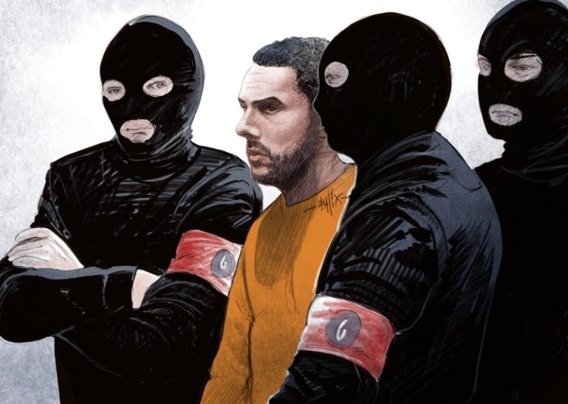Mehdi Nemmouche, the man found guilty of the attack on the Jewish museum in Brussels in May 2014 in which four people were shot dead, has been sentenced to life imprisonment, with a special provision that he be detained for a further 15 years once his sentence is served. “Life goes on,” Nemmouche joked on hearing his sentence.
Life imprisonment in Belgium is considered the equivalent of 30 years, and in normal circumstances a prisoner can be considered for release after serving a minimum 15 years of his sentence. On paper, that could mean that Nemmouche could be released in just over ten years, taking account of time served on remand.
However the murder verdicts against him carry one aggravating factor, that they were committed in pursuit of terrorist aims. In addition, he was sentenced to life for four homicides, with the sentences running concurrently.
For that reason the court has had recourse to the special provision whereby Nemmouche, regardless of when he becomes eligible for release – even if he were to serve the full 30 years – can be detained for 15 years more if it is considered that he still represents a danger to society. That decision is then tested in court annually.
On any question of parole, the decision must be taken by five judges unanimously, since this is a terrorist crime a decided by the jury. In other cases, parole is decided by a majority of a bench of three judges.
Nacer Bendrer, convicted as Nemmouche's accomplice, was sentenced to 15 years, with a further five years to be served if he is considered unfit for release after that time.
Representatives of the Jewish Museum described the sentencing as “a victory of the rule of law over hatred.”
“As a tribute to [victims] Miriam and Emanuel Riva, Alexandre Strens and Dominique Sabrier, as well as their severely tried families, the Jewish Museum never yielded to fear. Today a page has been turned.”
Delivering the sentences, the court said “The attack was not only an attack on the Jewish community, but also on the basis of our society, on our democracy and on our values.”
The defence lawyer for Nemmouche probably spoke for the whole country for once in this whole trial when he described the final outcome as “predictable”.
“For us, the question of guilt was most important, and once that was answered, it was possible to speak of mitigating circumstances, but Nemmouche chose not to do that. So from our point of view, this sentence was predictable.”
Co-accused Bendrer spoke for himself. “I'm sorry I ever crossed that guy's path,” he said. “I say guy, but he's not a guy, he's a monster.”
Alan Hope
The Brussels Times

